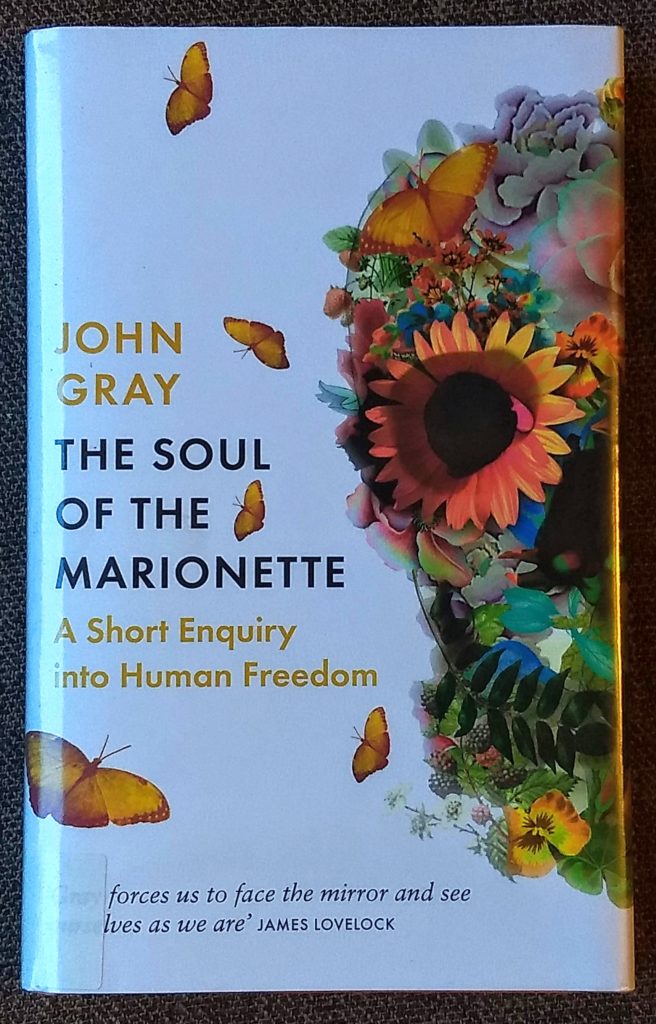
“Provocative and freewheeling” reads the blurb on this book. That’s a fair description, though “freewheeling” could just as well be “unfocused” or “rambling”. Gray claims that modern culture, especially western culture, pretends to be rationalistic and scientific but is actually just as religious as older faith-based cultures. In fact he treads the well-worn path of saying that the older cultures are more “authentic” and that what we have now is just a confused version of what came before:
As so often is the case, secular thinking follows a pattern dictated by religion while suppressing religion’s most valuable insights. (p.19)
Where these older moralities are superior to modern moralities is Ancient thinkers were more intelligent as well as more honest. (p.159)
Unknown to themselves, some of the most militant twentieth-century scientific thinkers have adopted a view of things that is essentially Gnostic. (p.149)
All this seems a bit hackneyed. But he does make the trenchant point that while religion has declined, some of its worst features have remained: intolerance and hubris are just as endemic to secular culture. Gray is also very negative about the modern surveillance society. But then, who isn’t?
I was disappointed in the discussions of the nature of consciousness and free will. Gray doesn’t say a lot about it, and some of what he does say just seems clearly wrong:
The idea that consciousness is a mystery is a prejudice inherited from monotheism. (p.151)
everyone takes for granted that if there is such a thing as free will only humans can possess it. (p.152)
I do like Gray’s comparison between freedom to choose and freedom from choice: maybe we say we want the first but sometimes we really want the second. Choice is a benefit but it’s also a burden. This is explored more deeply in Barry Schwartz’s book The Paradox of Choice.
Gray also discusses other writers and thinkers, which is interesting but maybe not always fully to the point. I enjoyed reading about the life and work of Edgar Allen Poe, Jorge Luis Borges, Stanislaw Lem and Philip K. Dick, though I know them fairly well. But I also picked up some new threads to investigate further: Guy Debord, T. F. Powys, and E. M. Forster’s science fiction.
The Soul of the Marionette sparked some interesting tangents of thought for me, and gave me many pointers for further reading. I don’t feel as if I got a lot of information from the book or learned anything new, but I still enjoyed reading it.